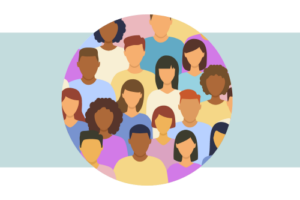DEIB and Advocacy: How to Start Your Skill Development Plan
Written by Nina Banks (’23), Current Candidate for MS in Management in the WFU School of Business (May 2025) and Former Fellow in the Office of Personal & Career Development at Wake Forest University

Diversity, Equity, Inclusion and Belonging (DEIB) is consistently becoming a standard practice for organizations across all industries. According to a study from COQUAL, “The differentiation we see from colleagues of those who belong illustrate a supportive colleague culture, where individuals feel seen, and connected, regardless of their background” (Coqual. “The Power of Belonging: What is it and Why it Matters in Today’s Workplace”. Belonging Series-Part 1. 2020.). Skills and competencies that elevate DEIB efforts in the workplace are incredibly valuable in the current world of work. Developing advocacy skills is an important step in the process of elevating DEIB. Some of the many ways that advocacy fosters inclusion and belonging in the workplace are:
- Cultivating trust. The effectiveness of DEIB efforts relies on the level of connectedness individuals feel to their community. Feelings of trust tend to foster a strong sense of connectedness especially in marginalized communities. Trust is cultivated by respecting people’s unique lived experiences and consistently demonstrating a commitment to identifying, addressing, and taking steps to dismantle inequitable systems.
- Fostering collective buy-in. Communities with strong feelings of connectedness and trust are more likely to collectively buy into advocacy efforts. Collective buy-in is inspired when the people in a community are equally invested in fostering an inclusive environment. The responsibility and labor of leading DEIB efforts is not delegated to an individual; rather, it is dispersed amongst everyone in the community.
- Defining and strengthening structures. Holding organizations accountable to their DEIB standards requires addressing specific practices, both formal and informal, that are inequitable. In addition to addressing them, it’s important to introduce better systems, structures, policies, procedures and workplace norms. Solutions that are community-based and incorporate a bottom-up design ensure that the most vulnerable people in the organization feel valued and protected.
Utilizing a strengths-based skill development plan is a great practice for starting the process of developing advocacy skills. Our DEIB Skill Development Plan Outline can help you consider what your strengths are and how to leverage those strengths to support your DEIB goals. Each step in the outline includes guiding questions and a prompt to help frame and organize the process.
It’s important to remember that starting a skill development plan is a cyclical process and it’s important to frequently return to these steps throughout your DEIB journey. This process will grow and evolve as your understanding of DEIB grows and evolves. When this happens, you will be equipped with the tools to reflect on where you are in that process and how to intentionally move forward.
